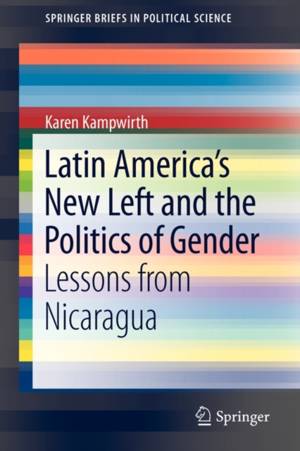
- Retrait gratuit dans votre magasin Club
- 7.000.000 titres dans notre catalogue
- Payer en toute sécurité
- Toujours un magasin près de chez vous
- Retrait gratuit dans votre magasin Club
- 7.000.0000 titres dans notre catalogue
- Payer en toute sécurité
- Toujours un magasin près de chez vous
Description
The majority of Latin Americans now live in countries that are governed by democratically elected governments on the political left, which is unprecedented in that region. This book analyzes this occurrence by asking a question that up until now has been largely ignored in the literature on the contemporary Latin American left: to what extent have these governments governed with, and promoting the interests of, the women's movements that are an important part of their base of support? This question is examined by focusing on a critical case that is rarely analyzed in the literature on the new Latin American left, the case of Nicaragua. The broader implications for Latin America will be shown, making this book of interest to researchers and graduate students in Latin American studies as well as gender studies and political science.
Spécifications
Parties prenantes
- Auteur(s) :
- Editeur:
Contenu
- Nombre de pages :
- 54
- Langue:
- Anglais
- Collection :
- Tome:
- n° 2
Caractéristiques
- EAN:
- 9781461403586
- Date de parution :
- 26-07-11
- Format:
- Livre broché
- Format numérique:
- Trade paperback (VS)
- Dimensions :
- 156 mm x 234 mm
- Poids :
- 86 g

Les avis
Nous publions uniquement les avis qui respectent les conditions requises. Consultez nos conditions pour les avis.






